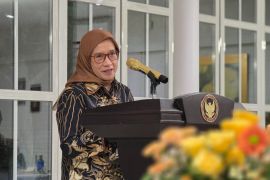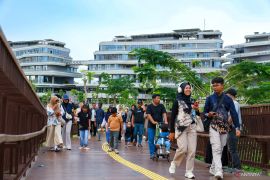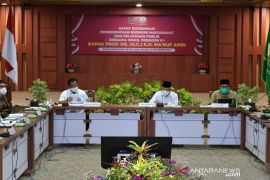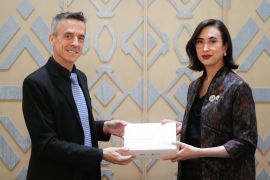Dubbed "a brotherly cup of tea", the weekend initiative took different forms with local mosques handing out hot drinks and pastries, offering guided visits, putting on debates and calligraphy workshops, and even inviting people to attend one of the five daily prayers.
Organised by the countrys leading Muslim body, the French Council of the Muslim Faith (CFCM), it aims to stimulate dialogue about Islam and create a greater sense of "national cohesion", a year after 17 people were killed in jihadist attacks in Paris targeting satirical weekly Charlie Hebdo and a Jewish supermarket.
"The objective is to create a space where people can be together and meet normal Muslim worshippers and all of our fellow citizens," CFCM president Anouar Kbibech told AFP.
The idea is to use the anniversary of the January 7-9 attacks to "highlight the real values of Islam, to set straight the cliches about links to violence and terrorism," he said, describing the venture as a "gesture of openness".
"Instead of dwelling on these tragic acts, it seemed more useful and important to celebrate the spirit of January 11," he said, referring to the date last year when millions of people took to the streets in a mass show of solidarity.
Following further attacks in November, in which jihadists killed 130 people, France declared a state of emergency which has seen police staging around 20 raids on Muslim places of worship. At least three have been closed on suspicion of radicalising their members.
In a small prayer hall in Ajaccio on the French island of Corsica, which was attacked on Christmas day, Jean-Francois, in his sixties, took up the invitation to visit.
"If someone holds out their hand, I accept it and I shake it," he said, while drinking a steaming cup of tea.
French Interior Minister Bernard Cazeneuve accepted an invitation to visit a mosque near Paris, and hailed the initiative.
France needs, more than ever, "the engagement of all Muslims in France," he said, while warning that "the self-proclaimed preachers of hate" in mosques would be dealt with severely.
Although not all of Frances 2,500 mosques and places of worship are taking part, the most important ones are, including the Grand Mosque of Paris.
The event comes after a year which saw a surge in anti-Muslim acts in France, some of which targeted places of worship, although the number was much lower after the November bloodshed than after the January attacks.
Frances five million Muslims often complain of discrimination, notably on the employment front.(*)
Editor: Heru Purwanto
Copyright © ANTARA 2016











